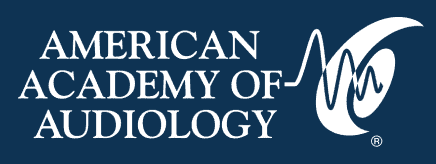Audiology as a field is relatively young, with the first audiology program created only in 1946.
As World War II progressed, service members who were deployed often returned home with substantial hearing deficits, evidenced by marked reduction in their ability to recognize speech. As a result, the field of clinical audiology was formalized to assist the many young and otherwise healthy service members who required rehabilitation.
Moving beyond traditional approaches to psychoacoustics research, researchers shifted their focus to apply their understanding of hearing to address the need for speech and hearing rehabilitation for these service members. At that time, Northwestern University was already operating a Speech Re-Education Department; one of the graduates from this PhD program was Dr. Raymond Carhart, widely considered the grandfather of audiology. Dr. Carhart remained there following his dissertation, beginning work to establish clinical methods for speech audiometry.
With this focus on improving speech recognition, the program at Northwestern University was well-positioned to take on the challenge of rehabilitating the service members returning home with hearing loss. Indeed, the clinic had treated more than 4,500 patients by 1944 and received support from the Veterans Administration (VA) to develop treatments for hearing disorders.
With many young service members struggling to understand speech, Dr. Carhart was instrumental in creating the first academic audiology program at Northwestern University in 1946. This program spawned many founding clinicians and researchers in audiology, such as Dr. James Jerger. Audiology programs are essential training centers for current students and require excellent clinical preceptors to ensure future audiologists routinely use evidence-based practice and good clinical reasoning to achieve the best outcomes for patients throughout their career.
While academic audiology programs offer the foundational education needed to begin practicing audiology, the ABA offers further support to clinical audiology preceptors by offering the Certificate Holder—Audiology Preceptor (CH-AP). CH-AP was written and developed by a cohort of audiologists and researchers with extensive experience in audiology precepting, and covers a breadth of issues that face audiology preceptors today (which are a little different than in 1946!). Read more about the CH-AP and other ABA certificate programs here.
In recognition of the first academic audiology program being created in 1946, the ABA Audiology Spotlight features Anna McCraney, AuD, who received ABA certification number 1946. Don’t miss out on her history with audiology, motivations for becoming ABA Certified in 2009, and her interest in continued improvements to clinical protocols such as speech audiometry, which have evolved many times since the historic version that Dr. Carhart originally produced.
Reference
Northwestern.edu. (2019) “History.” Northwestern University Center for Audiology, Speech, Language, and Learning (accessed August 4, 2021).
Recent Posts
ASLP-IC Readies for Rollout: Here’s What You Need to Know
The Audiology and Speech-Language Pathology Interstate Compact (ASLP-IC) continues to move toward full implementation, expanding opportunities for audiologists and speech-language pathologists to practice across state…
How Do Animals Perceive Music?
Music can be defined as vocal, instrumental, or mechanical sounds, with rhythm, melody or harmony, and often, an expression of human emotion. Music can transcend…
‘Eye’ on Health: AI Detects Dizziness and Balance Disorders Remotely
Interesting research led by audiologist Ali Danesh, PhD, at Florida Atlantic University (FAU) helped develop a novel, proof-of-concept tool to help identify nystagmus using a…



